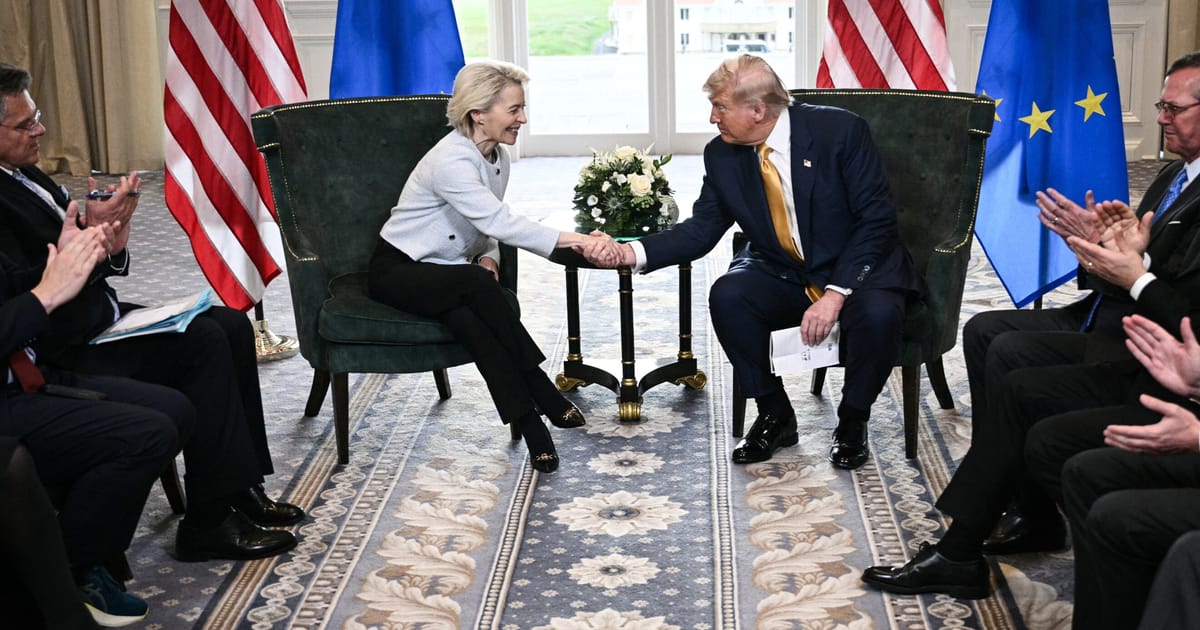

In recent developments between the United States and the European Union, discussions surrounding new trade tariffs have sparked substantial reactions from various sectors. The current discourse primarily focuses on the potential implications of proposed tariffs, and how certain industries might be affected.
The trade agreement between the EU and the US appears to position the European industries at a disadvantage, as most EU exports are subject to a significant 15% tariff imposed by the United States. This agreement, while reflecting a strategic negotiation between the two global economies, has been critiqued for not being entirely favorable to the EU. Despite this, sectors such as automotive, aviation, and semiconductors have managed to escape the harshest repercussions, displaying a degree of resilience amidst the broader economic constraints.
Among the most vocal in their concerns are European pharmaceutical companies, who have labeled the 15% import tariffs on medicines as a detrimental move. This levy is viewed as a ‘blunt instrument’ that could disrupt access for patients on both continents, potentially hindering supply chains and stalling research and development initiatives within the sector. The emphasis remains on the unsolved challenges that the tariff could pose to transatlantic healthcare and innovation.
In parallel, Scotland’s First Minister John Swinney is advocating against the imposition of a 10% tariff on Scotch whisky, identifying a ‘window of opportunity’ to negotiate exemptions during discussions with the US President, Donald Trump. This tariff is believed to be onerous for the Scotch whisky industry, affecting its economic stability notably by incurring losses amounting to approximately £4 million each week. The meeting, held at Trump’s golf resort in Aberdeenshire, was not only strategic for Scottish whisky producers but also showcased the intersection of international trade and diplomacy.
There is a broader sentiment shared by some within Europe that these trade negotiations mark a strategic setback rather than a triumph of free trade principles. The ensuing economic landscape may signal a period of adjustment for industries that find themselves vulnerable under the new tariff regime. Although the negotiations aim to balance economic interests, the perceived concessions could leave an imprint on how the EU navigates its economic policies on the global stage.
Meanwhile, certain companies amidst the turbulent trade environment have shown financial resilience, as reflected in the example of Corticeira Amorim. The Portuguese cork company reported a slight increase in profits during the first half of 2025. With a net income of €36.8 million, the firm’s solid performance contrasts with the challenges faced by other sectors, emphasizing a mixed economic scenario shaped by varying levels of impact across industries.
In summary, while the trade discussions between the EU and the US are poised to redefine significant aspects of economic relations, they also present opportunities and challenges that countries, industries, and companies must navigate with strategic insight and negotiation. As these developments unfold, there remains a keen interest in how all parties can derive mutual benefits without hamstringing key industries, which continue to be the backbone of transatlantic economic cooperation.
Source: {link}
